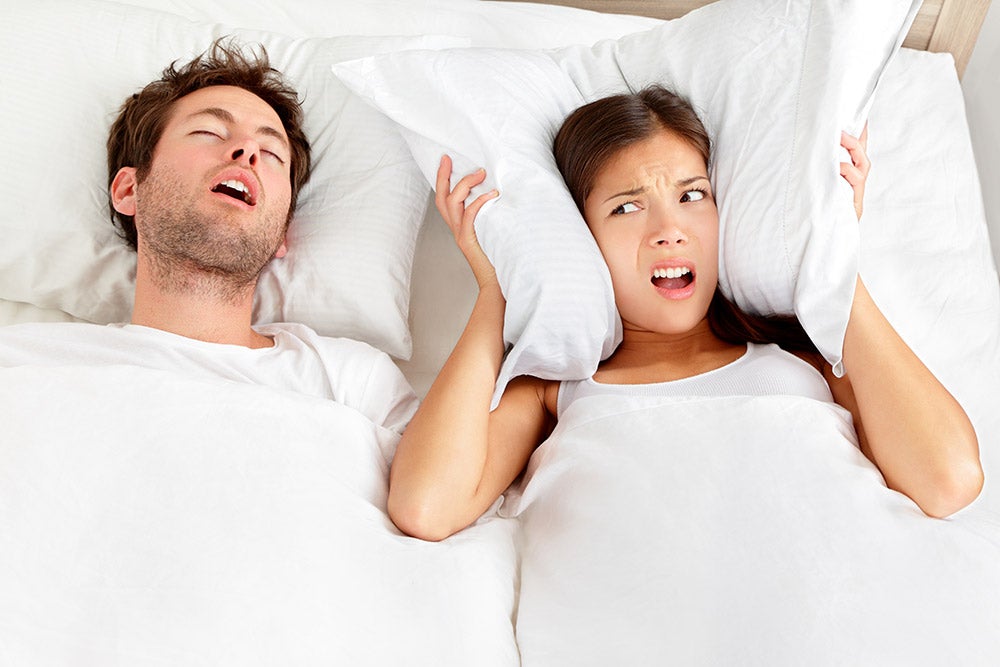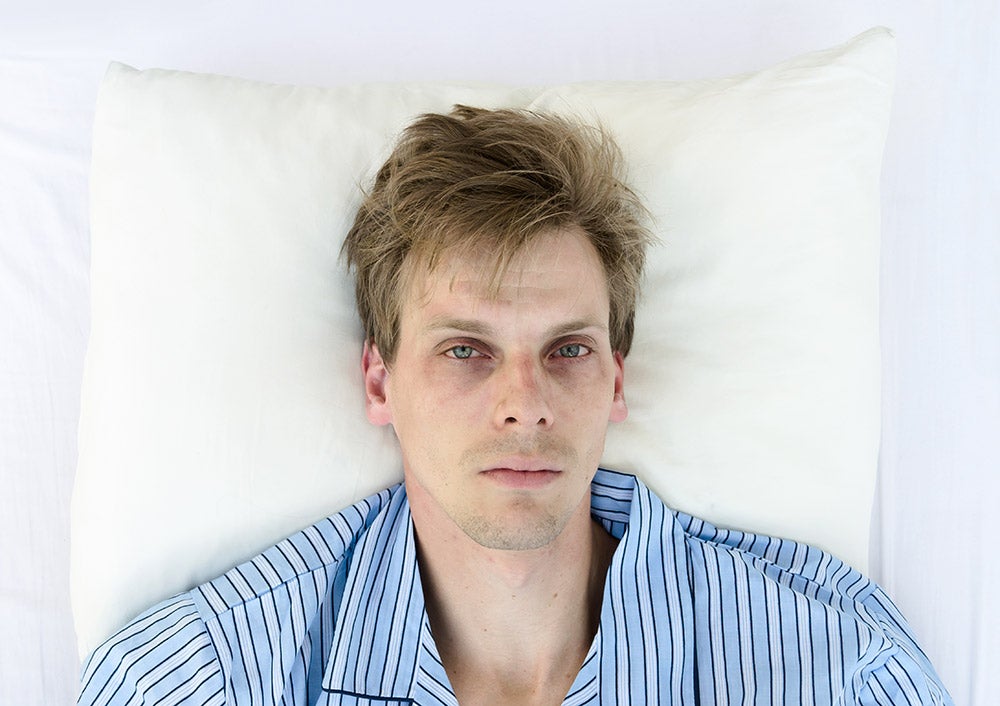During sleep, there are some strange things that some people do in their sleep that they do not remember when they finally wake. In most cases, their partner or roommates are the ones who remind them of their nocturnal activities.
Regardless of the stage of sleep an individual is in – REM or NREM – there are sleep disorders that are physically expressed and can be manifested in speech, walks, use of electronic devices, especially mobile phones, and other normal activities that such individuals will or will not engage in when they are conscious. This phenomenon is called Parasomnia.
Parasomnia encompasses various physical activities during sleep. It ranges from sex during sleep, to which the perpetrator is unaware when awake in the morning, eating while asleep, and physically enacting what is happening in their dreams. In some cases, parasomnia is linked to neuro degenerative diseases, such as stroke, Parkinson’s disease, system atrophy, among others.
Here are some of the weird things that people do in their sleep, and they can be attributed to Parasomnia.
Sleep Walking
Sleep walking is the act of walking while you remain asleep. This form of Parasomnia is formally known as somnambulism, and it occurs during deep sleep. It is a more common occurrence in children than adults and can be attributed to a family history of sleep walking. It might seem like an individual who sleepwalks is conscious of what they do, especially when they go directly to a portion of the house. However, it becomes apparent that they do not, when they are unable to recollect their walking activities of the night.
Sleep walking occurs during the first half or third of the night, when the affected individual is in deep sleep. It is not limited to walking, the affected individual may run, get dressed, move furniture, or drive a vehicle, in extreme cases. While this does not directly point to a poor quality of sleep, it is considered a sleep disorder as there are dangers attached to it.
The dangers of sleepwalking mostly include accidents that involves tripping and falling, which may consequently lead to injuries in any part of the body. Also, there is the possibility of embarrassment to the affected individual, especially if they have an episode in the presence of someone who is not a family member.
Sleepwalking is usually caused by medications that help to treat depression and insomnia. Also, it can be caused by other sleep disorders, such as Obstructive Sleep Apnea and Restless Leg Syndrome. Stress and sleep deprivation may also be causes for sleepwalking, while a far-fetched cause is brain injury and alcohol consumption.
Sleep talking
Sleep talking is the engagement of the mouth to produce sounds – intelligible or not – during sleep. It can occur at any time of the sleep cycle and is one of the most common strange things some people do during sleep. It can last for a few seconds to a few minutes, sometimes numerous times during sleep However, the affected individual is unaware of his verbal activities.
It is formally called somniloquy and can occur in both adults and children. Unlike some other abnormal sleep activities, it can occur in any sleep cycle. The speech can be a monologue or dialogue and can be unintelligible, sometimes.
Although the cause of sleep talking is unproven, it is mostly linked to genetics and mental disorders. In some cases, individuals with recurrent sleep talking have mental issues, such as post-traumatic stress disorder. In other cases, it occurs with other sleep disorders, such as sleep walking or acting out dreams.
The content of the speech during sleep is unknown; although it is suspected to be part of a dream that occurs in the REM cycle of sleep. However, there is no scientific backing for this. For this reason, there is less danger attached to sleep talking to the affected individual. Although some of the content of speech may be embarrassing but can be overlooked since the perpetrator has no knowledge of it. However, it may cause sleep disturbance for partners and housemates.
Acting Out Dreams
Acting out dreams is one of the strange things that people do in their sleep. It involves the physical manifestation and presentation of what is going on in dreams. It is usually more pronounced in people that suffer from post-traumatic stress disorder, and it usually occurs during the REM cycle of sleep. It encompasses both audible and visible actions, which mostly lead to a poor quality of sleep for the affected individual.
Depending on what is happening in dreams, acting out dreams can be violent, funny, or plain. Sometimes, it can be manifested in just talking and laughing, usually in response to an act in the dream. Other times, it may involve kicking and thrashing in bed, or both.
It is commonly found to occur in adults above 50 years old, especially if they have neurodegenerative disorders, such as Parkinson’s disease. It is also attributed to the use of certain medications, such as antidepressants and alcohol.
Sleep Eating
Sometimes called sleep-related eating disorder, sleep eating is a condition in which an individual sleep walks and eats already prepared, raw, or freshly made food, without any knowledge of doing so when they are fully conscious. The foods they consume are usually those they won't eat when they are awake and conscious of their actions.
Sleep eating can cause weight management issues, and consequently obesity and depression. Therefore, its dangers range from physical to psychological issues that are ordinarily difficult to deal with. Also, there is a chance that affected individuals may injure themselves with sharp objects, such as knives, when preparing food. Also, they may ingest unpalatable foods that have detrimental effects on them.
The cause of sleep eating is unknown but is common among young adults. It also tends to be a continuous sleep disorder and habit. It also occurs in association with sleep walking.
Sleep Texting
This is a sleep disorder that occurs among teenagers and young adults. It is characterized by an initiation or response to a text message while remaining asleep. Although it can be avoided, it is usually encouraged by the presence of mobile phones in bed with affected individuals. Usually, the affected individuals have no recollection of texting anyone during the night until they see the text on their phones.
In some cases, the text messages are without errors, but in most cases, they are riddled with errors, sometimes unrelated to the topic of discussion, or wrong spellings.
This sleeping disorder does not seem to have any danger but can make one divulge information that has been on the subconscious and is not meant to be shared.
Sleep Violence
Sleep violence is the display of physical force while sleeping, meaning the perpetrator is unaware of their action. Usually, sleep violence doesn’t occur alone, it is associated with another sleep disorder and sometimes, an underlying mental condition.
It can be expressed in words or forceful movement of the limbs. It usually occurs during the REM cycle of sleep and is associated with the causes of poor sleep quality. It can occur as a response to what is happening in a dream, which usually occurs during the REM sleep cycle.
Affected individuals may have verbal anger bursts or hit their sleep partner. It becomes more serious if they sleep walk, and can handle sharp objects.
During sleep, we are semi-conscious, and engage in some activities we have no idea we did. While some of these activities, such as turning in sleep, may seem normal, others, such as talking, eating, walking, are abnormal.
They pose danger to the affected individuals and their housemates and partners, causing poor sleep quality and bodily damage, in some cases.






















